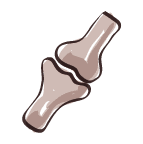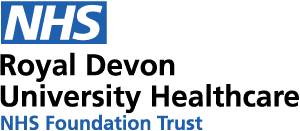Specialties
Specialists have tailored workflows and content, designed by their peers, based on best practices from across the Epic community.
Cardiology (Cupid)
Cupid, Epic’s Cardiovascular Information System (CVIS), supports cardiology workflows, including invasive and non-invasive procedures. Flexible structured reporting standardizes cardiology reports, which can be used for robust reporting and continuity of care. To integrate images and other procedural data into the patient’s comprehensive record, Cupid is designed to work in combination with a PACS, ECG, and other imaging systems.

Cardiology (Cupid)
details →
Dental (Wisdom)
Dentists play an important role in preventing periodontal disease that can lead to inflammation and other chronic conditions. They use Wisdom, Epic’s dental application, to document oral health, plan treatments, manage preventive care, access relevant clinical information, and coordinate with the rest of the care team.

Dental (Wisdom)
details →
Dermatology
The Dermatology application helps dermatologists complete common tasks quickly, such as documenting diagnoses, writing notes, managing specimens, and tracking findings over time.

Dermatology
details →
Emergency & Urgent Care (ASAP)
Make the right thing easy to do and quick to document in busy ED and urgent care settings with comprehensive patient information alongside active decision support.
.png&w=3840&q=75)
Emergency & Urgent Care (ASAP)
details →
Endoscopy (Lumens)
Lumens, Epic’s endoscopy reporting tool, supports scheduling, performing, resulting, and following up on gastrointestinal (GI) and pulmonology procedures. Endoscopists can document findings, connect findings to the appropriate images, create procedure reports, and use reports to evaluate key quality metrics.
.png&w=3840&q=75)
Endoscopy (Lumens)
details →
Genetics & Genomics
Use insights from genetic testing in care decisions across your organization, such as pharmacogenomics for prescribing support and tumor biomarkers in oncology treatment.
.png&w=3840&q=75)
Genetics & Genomics
details →
Lab (Beaker)
Beaker Clinical Pathology helps clinical laboratory staff manage lab orders, collect specimens, track samples moving through the lab, test accurately, and report results effectively. With Beaker Anatomic Pathology, pathologists and techs contribute to the same unified patient record physicians and nurses do, so everyone sees a more complete picture of the patient's health. This integration also helps ensure important results are communicated quickly so that clinicians can choose the right approach to treatment.
.png&w=3840&q=75)
Lab (Beaker)
details →
Nephrology (Beans)
Beans Dialysis provides the tools dialysis centers need to manage the clinical care of their patients and monitor the quality and efficiency of care. Dialysis treatment teams, dialysis reporting staff, and facility administrators can efficiently manage dialysis treatment plans, create interdisciplinary plans of care, and report on quality improvement initiatives.

Nephrology (Beans)
details →
Obstetrics, Labor & Delivery (Stork), and Fertility
Stork obstetrics and L&D supports documentation for some of the most important moments in a patient’s life, from an expecting patient’s first ultrasound to a newborn’s first few critical hours. EpicCare Fertility provides reproductive endocrinology and infertility (REI) clinicians tools to track pertinent medical and fertility information throughout the course of patients' fertility treatment cycles.
.png&w=3840&q=75)
Obstetrics, Labor & Delivery (Stork), and Fertility
details →
Oncology (Beacon)
Beacon is Epic’s adult and pediatric oncology and hematology specialty product. It offers tools to manage a patient’s oncology care, such as standardized protocols for ordering and administering chemotherapy and tracking radiation therapy. It also helps clinicians submit staging data to national cancer registries, including the American Joint Committee on Cancer (AJCC).
Oncology (Beacon)
details →
Ophthalmology (Kaleidoscope)
Kaleidoscope, Epic’s ophthalmology specialty module, gives ophthalmologists and optometrists features and clinical content for subspecialty, diagnostic testing, and eye imaging workflows. Though eye care tools are available with EpicCare Ambulatory, Epic recommends Kaleidoscope for most eye clinics where ophthalmologists work as providers. For optometrist-only clinics, Epic also offers the Optometry module.
.png&w=3840&q=75)
Ophthalmology (Kaleidoscope)
details →
Orthopaedics (Bones)
Bones, Epic's orthopaedics application, supports orthopaedists' clinical review, documentation, ordering, and procedural workflows. The application includes joint injection support, "one screen" orthopaedic documentation workflows, and location-based charting. Use reports compiled from data in Epic to submit information to the American Joint Replacement Registry (AJRR).

Orthopaedics (Bones)
details →
Radiology (Radiant)
Radiant supports scheduling, performing, and resulting radiology exams. Technologists and nurses are guided through exam workflows, and radiologists have the tools to prioritize and report on studies while tracking actionable findings and follow-up procedures. Dashboards visualize department and individual performance to facilitate the best care for patients while making the most efficient use of modalities and other resources.
.png&w=3840&q=75)
Radiology (Radiant)
details →
Surgery (OpTime) & Anesthesia
OpTime lets users document pre-, intra-, and post-procedure surgical workflows in one perioperative record. With Anesthesia, clinicians can complete perioperative documentation, make informed patient care decisions, report on patient outcomes and operational goals, and efficiently capture charges.
.png&w=3840&q=75)
Surgery (OpTime) & Anesthesia
details →
Transplant (Phoenix)
Phoenix offers a comprehensive view of the transplant process, from the initial evaluation to post-operative follow-ups. Phoenix is a hub for clinical, research, and registry reporting activities.
.png&w=3840&q=75)
Transplant (Phoenix)
details →
I got involved with a steering board to learn from other pediatric endocrinologists about ways to configure our system to meet our specific needs. Most boards have an open policy so you can be a fly on the wall and listen in even before you become a voting member. Over time, I started contributing ideas myself and realized becoming an official board member was a great opportunity to effect meaningful change across the country, or even the world.
—Yaa Kumah-Crystal, MD, Vanderbilt University Medical Center, Pediatric Endocrinology Steering Board

Patients Go Home Sooner After Hip and Knee Replacements Using Standardized Guidance in Epic
To reduce long wait times for elective surgery, the Devon Integrated Care Board created a pioneering surgical center focused solely on day and short-stay orthopaedic procedures. Supported by standardized orders and clinical decision support in Epic, nearly every patient who receives a hip or knee replacement there goes home by the next day, and the majority go home the same day.
Read the full article on EpicShare →
Increasing OR Utilization and Saving Schedulers Time with Transparent, Convenient Surgery Scheduling
Community Health Network improved primetime OR utilization by seven percentage points and saved surgical staff at least 20 hours per month by prompting surgeons to release unused OR time and giving schedulers access to see and schedule into available time—without phone calls or faxing.
Read the full article on EpicShare →
Radiology Has Been Added to the Chat: Improving Communication to Discharge Patients Sooner
UMass Memorial Health decreased avoidable bed days attributed to radiology delays by 97% by making expected discharge dates more visible for radiologists and using Secure Chat to improve care team communication.
Read the full article on EpicShare →
Discrete Bone Marrow Transplant Data Improves Efficiency, Accuracy, and Automation
Duke improved the accuracy and efficiency of its bone marrow transplant documentation by moving from disparate systems and paper to a centralized set of tools in the EHR.
Read the full article on EpicShare →
Digital Coordination of Oncology Conferences Improves Cancer Care, Saves Clinicians 800 Hours Annually
Corewell Health reduced the time it takes to prepare for multidisciplinary cancer care conferences by over 60%, saving clinicians an estimated 800 hours per year.
Read the full article on EpicShare →Can't find what you're after? Contact us
Resources
These resources require a UserWeb login. If you work at an organization that uses Epic and don't have a login, you can sign up here.
UserWeb Resources
Take a deeper dive into implementation and support documentation, education and training resources, and more on the UserWeb.
Anesthesia Overview →
Beacon Overview →
Beans Dialysis Overview →
Beaker Anatomic Pathology
and Advanced Diagnostics Overview →
and Advanced Diagnostics Overview →
Beaker Clinical
Pathology Overview →
Pathology Overview →
Bones Overview →
Cupid Overview →
Dermatology Overview →
Fertility Overview →
Kaleidoscope Overview →
Lumens Overview →
Phoenix Overview →
Radiant Overview →
Urgent Care Overview →
Stork, EpicCare Obstetric,
and Gynecology Overview →
and Gynecology Overview →
Roadmaps
See a high-level view of what Epic can do now, which new features are coming soon, and what the future holds.
